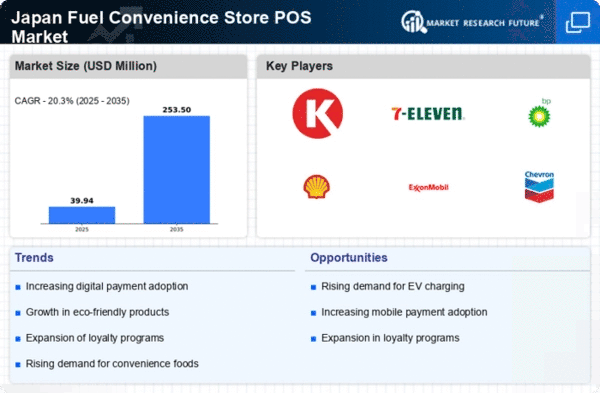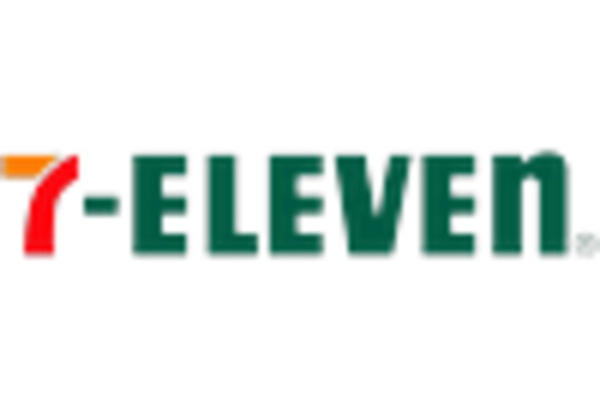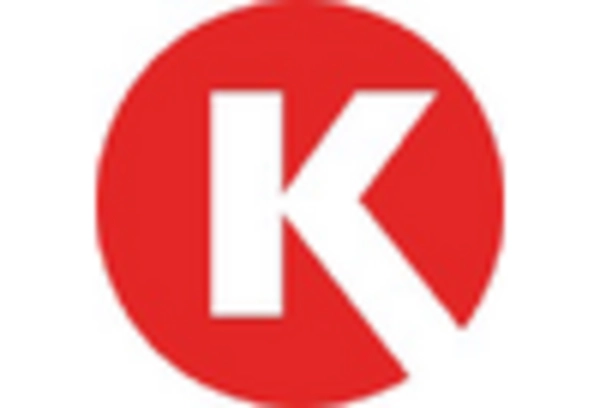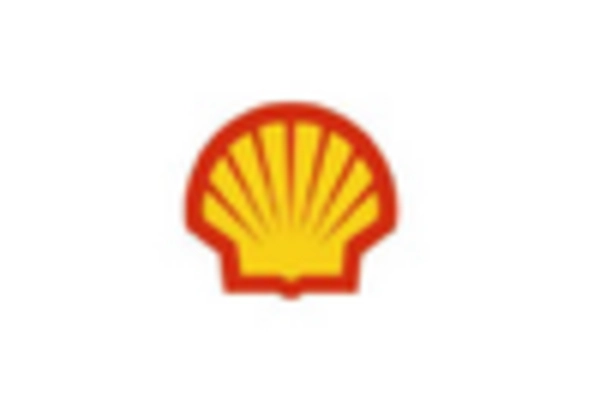Regulatory Changes and Compliance
The Fuel Convenience Store POS Market in Japan is subject to various regulatory changes that impact operations and compliance. Recent legislation aimed at enhancing consumer protection and environmental standards has prompted convenience stores to adapt their POS systems accordingly. For example, regulations concerning data security and payment processing have necessitated upgrades to ensure compliance. As of November 2025, it is estimated that compliance costs have risen by approximately 15% for convenience stores, influencing their operational budgets. This regulatory landscape compels businesses within the fuel convenience-store-pos market to invest in technology that not only meets legal requirements but also enhances customer trust.
Consumer Preference for Convenience
In Japan, the Fuel Convenience Store POS Market is significantly influenced by changing consumer preferences that favor convenience and speed. With busy lifestyles, consumers increasingly seek quick and efficient shopping experiences. This trend has led to the proliferation of convenience stores that offer not only fuel but also a wide range of products and services. As of 2025, data suggests that around 75% of consumers prefer shopping at convenience stores due to their accessibility and the ability to make quick purchases. This shift in consumer behavior is driving the fuel convenience-store-pos market to adapt and innovate, ensuring that stores meet the evolving demands of their clientele.
Focus on Health and Wellness Products
In Japan, there is a growing emphasis on health and wellness, which is impacting the Fuel Convenience Store POS Market. Consumers are increasingly seeking healthier food options and products that align with their wellness goals. This trend has prompted convenience stores to expand their offerings to include organic, low-calorie, and functional foods. As of November 2025, it is estimated that health-oriented products account for approximately 20% of total sales in convenience stores. This shift not only caters to consumer demand but also positions convenience stores as key players in the health and wellness sector, thereby influencing the overall dynamics of the fuel convenience-store-pos market.
Technological Advancements in POS Systems
The Fuel Convenience Store POS Market in Japan is experiencing a notable transformation due to rapid technological advancements. Enhanced point-of-sale (POS) systems are being integrated with features such as real-time inventory management and customer relationship management. These innovations not only streamline operations but also improve customer experience. For instance, the adoption of cloud-based solutions allows for remote access and data analysis, which can lead to more informed decision-making. As of 2025, it is estimated that approximately 60% of convenience stores in Japan have upgraded their POS systems to incorporate these advanced technologies, indicating a strong trend towards modernization in the fuel convenience-store-pos market.
Rise of E-commerce and Omnichannel Strategies
The Fuel Convenience Store POS Market is increasingly influenced by the rise of e-commerce and the implementation of omnichannel strategies. Consumers in Japan are becoming more accustomed to online shopping, which has led convenience stores to integrate their physical and digital platforms. This trend allows customers to order products online and pick them up in-store, enhancing convenience. As of 2025, it is projected that around 30% of convenience stores will offer such services, reflecting a shift towards a more integrated shopping experience. This evolution in consumer behavior is likely to drive growth in the fuel convenience-store-pos market as businesses adapt to meet these new expectations.
















